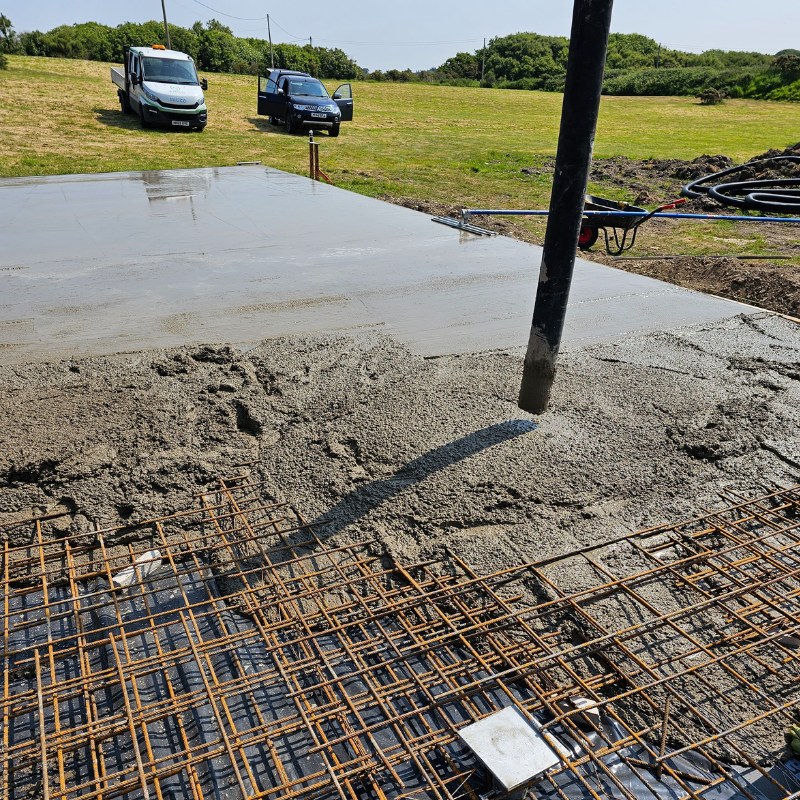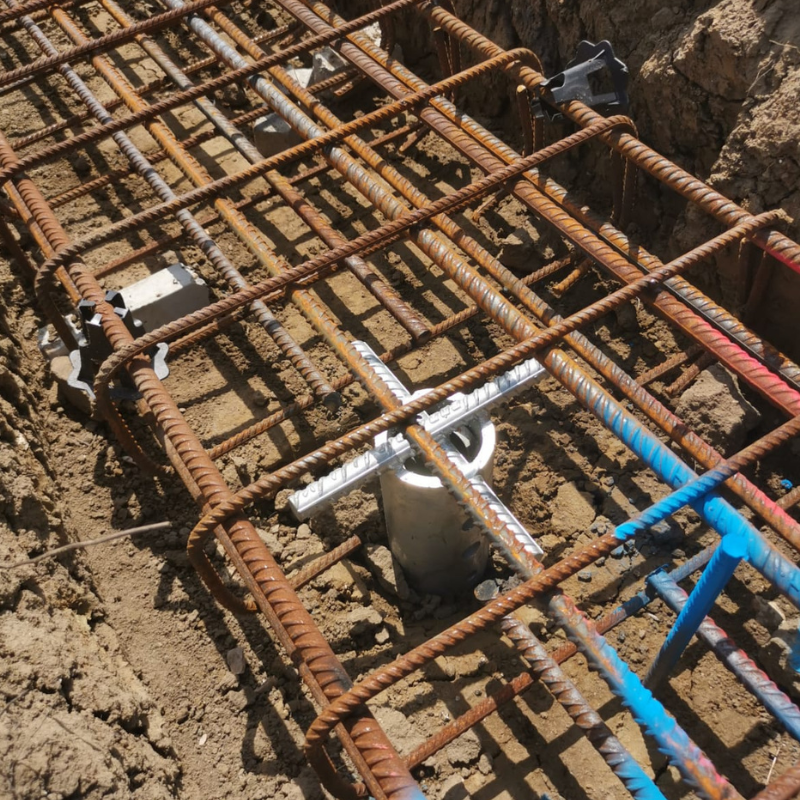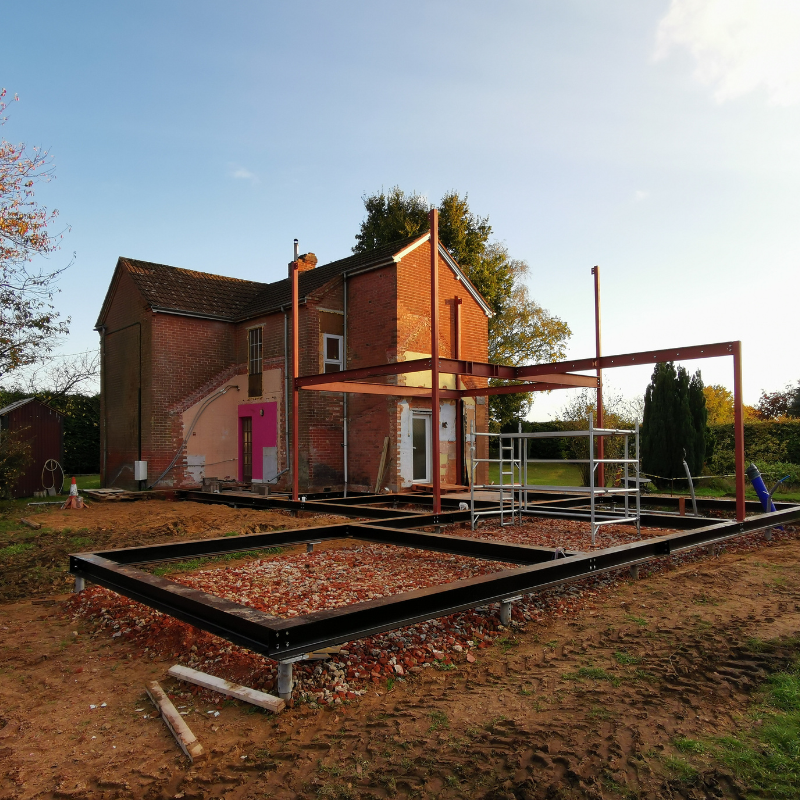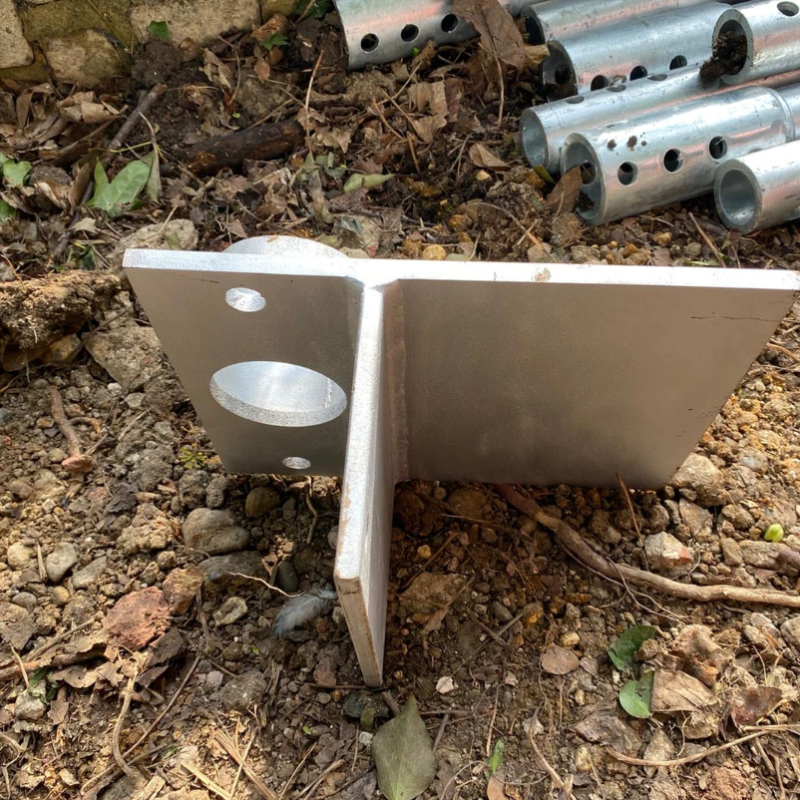Screw Piling is the perfect solution for various foundation types.
Reinforced concrete slabs
Strip foundations
Underpinning
Steel ring beam with block and beam floor
At USP we can work with any existing foundation designs and utilising our In-House Structural Engineer, we will value engineer any project to reduce loads, to help reduce the project cost and time on site for the client.
Call our office and talk to one of the USP team about your project. We would love to hear from you to see how we can help.
Screw piling is a fast and reliable way to build strong foundations. It involves driving steel piles with helical plates into the ground, creating a solid base for structures. Unlike traditional foundations, screw piles don’t require deep excavations or large amounts of concrete, making them quicker and more cost-effective.
They work well with reinforced concrete slabs, strip foundations, underpinning, and steel ring beams, making them a great choice for many projects. Screw piles are also ideal for sites with difficult ground conditions or limited access.

Screw Piling works exceptionally well with RC Slabs. The nature of utilising screwpiling to take point loadings within certain areas of a slab where applicable means that the overall load of the building can be spread more efficiently with the screwpiles thus reducing excavation, time and material costs.
We predominantly offer the option of an RC slab with Piles to a lot of our projects due to their efficiency and speed of install. They are exceptionally suited to both new builds as well as extensions.
High clay areas work especially well with screwpile / RC Slab designs when used with a clay heave board under the concrete slab. This is vital when you look at the expansion and contraction within the ground as the ground ‘moves’ within dry spells and wet weather.
Where Tree roots are found near a site, we can design a piled/slab solution that moves with the ground or cantilevers as the trees develop, grow and work with the moisture in the ground.
Advantages
Reduction of site excavation against traditional strip foundations
Reduces muck away
Reduces time on site
Reducing heave within the ground under the concrete slab
Ground beams / strip foundations work very well when incorporated with screw piles. We can value engineer an existing design to put screwpiles into a ground beam design to help reduce the loads.
We can design A393 steel mesh cages to sit around our screw piles, which again helps to reduce the amount of ground needed for excavation as well as vastly reducing the amount of concrete needed.
Typically strip foundations start at a minimum of 1m deep, but can go up to 3m deep sometimes more depending on ground conditions when excavation has started. By using our system, we can drastically reduce the need for such depths.
Advantages
Reduction in excavation depth
Reduction of muck away
Increase on loads supported
Faster turnaround of foundation installation on site


Screw Piling and steel ring beams are a fantastic solution where there are height issues for Finished Floor Levels, be it too low or additional height required. We use a particular steel section that is perfect to sit a block and beam floor design inside it. Giving you adequate ventilation underneath your foundation as well as reduction in overall height once the insulation and finished screed is installed. We can finish the steel in either a hot dipped galvanised or bitumen hand applied solution depending on Building Controls final decision.
Reduction in overall foundation height
Work well if a cantilever design is required
Excellent solution to install over existing drains or services
Very fast installation
We design, fabricate and install all steel work in our own fabrication workshop
Where underpinning is required due to subsidence of an existing building, it can be a very costly solution to do a traditional underpinning solution. Using Screw Piling with a custom made bespoke underpinned bracket is the perfect solution for underpinned requirements.
We would excavate an area roughly 500mm down from top of ground level to ascertain the location of the underpinning bracket, make the necessary removal of existing foundation to make space for the pile cap, install a screw pile to the required torque setting. Then install the bespoke pile cap to then support the area where the subsidence has occurred.
A less invasive method for underpinning against traditional solutions
Time sensitive
A more cost effective solution for difficult access

At USP, we specialise in efficient, cost-effective screw pile foundation solutions for all types of projects. Whether you’re working on a new build, an extension, or need underpinning for an existing structure, our expert team can design and install the right screw piling system for you.
Learn more about our Screw Pile Installation Services and get in touch today!
Yes. Screw piles provide a stable, load-bearing foundation for various structures, including houses, extensions, and commercial buildings. They are engineered to handle significant loads and can be used as the primary foundation or integrated with other methods like reinforced concrete slabs.
Screw piles allow for shallower excavations and reduced concrete use. They also enable lighter foundation designs since the load is transferred deeper into the ground. This flexibility makes them ideal for challenging soil conditions or sites with height restrictions.
Yes, screw piles perform well in soft ground, high water table areas, and unstable soils where traditional foundations may struggle. They are particularly useful in flood-prone areas or where soil movement is a concern.
In many cases, yes. Screw piles transfer loads to deeper, stable soil layers. They often replace deep trench foundations. This reduces excavation, site preparation, and material costs.
Yes. Screw piles are a non-invasive solution for underpinning buildings affected by subsidence. They can be installed next to existing foundations with minimal disruption, strengthening the structure without extensive excavation.
Screw piling is significantly faster than traditional foundation methods. Installation can often be completed in a day or two, with no waiting time for concrete curing. This speeds up overall construction schedules and reduces delays caused by weather or site conditions.
Our team of experts will be happy to help you with any questions you may have, and to provide you with a free, no-obligation quote for your project.
